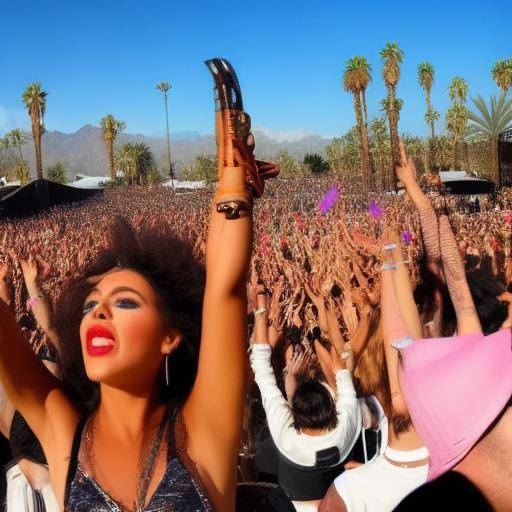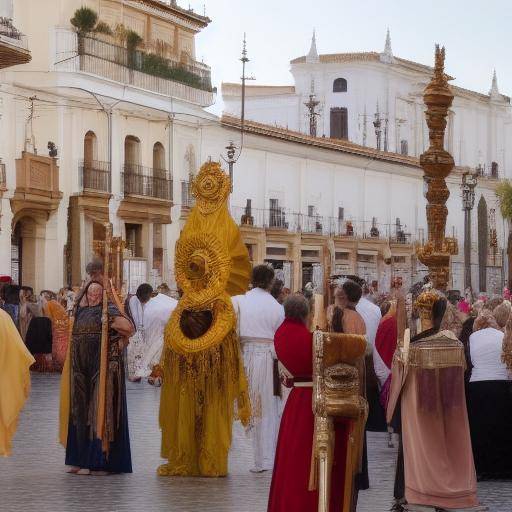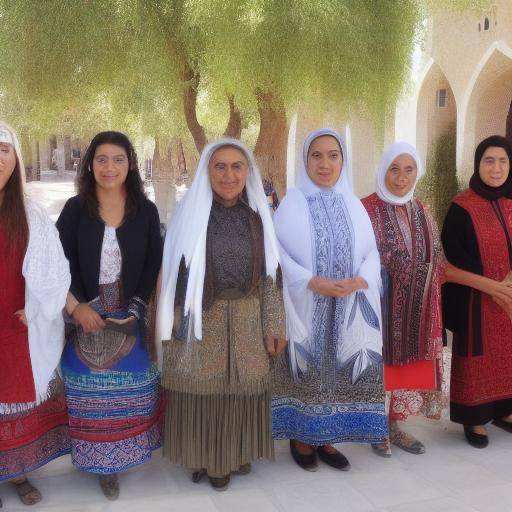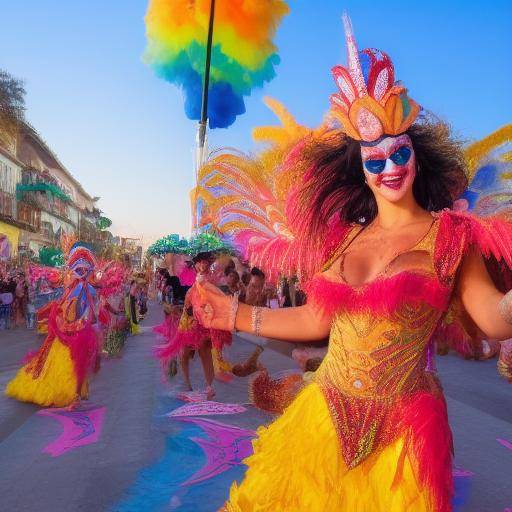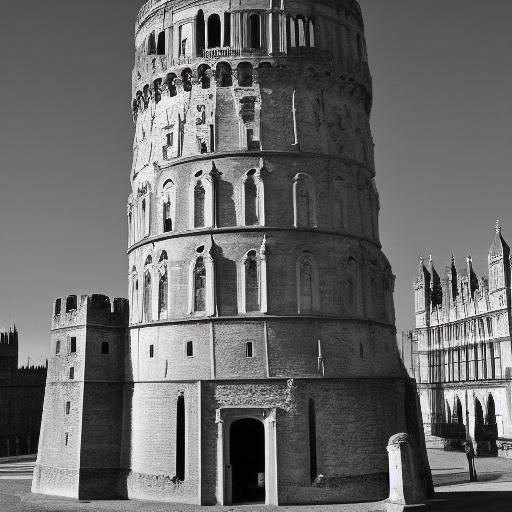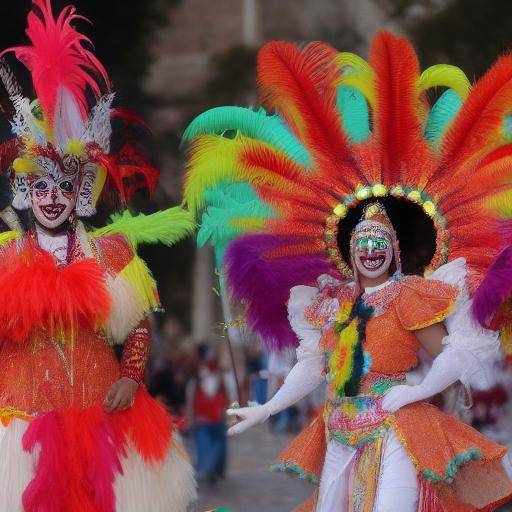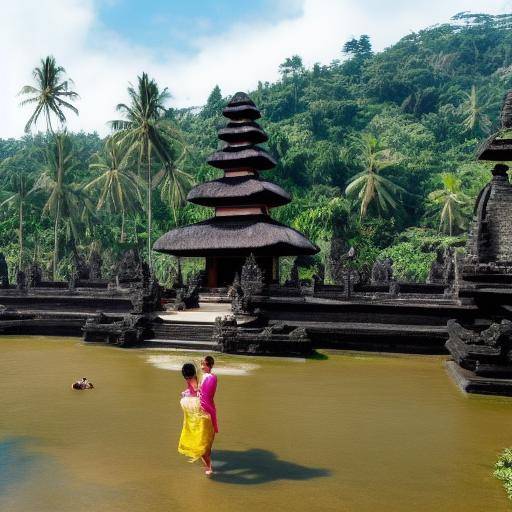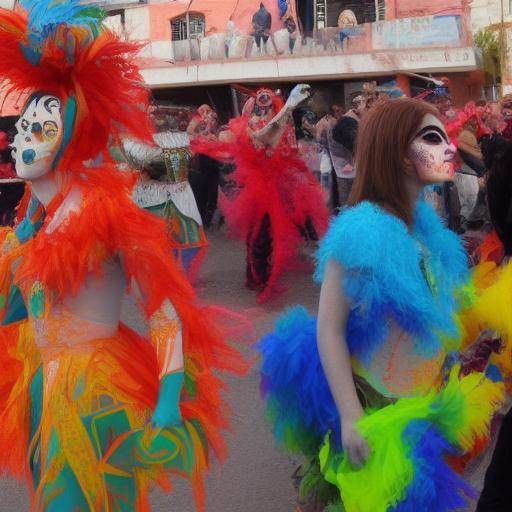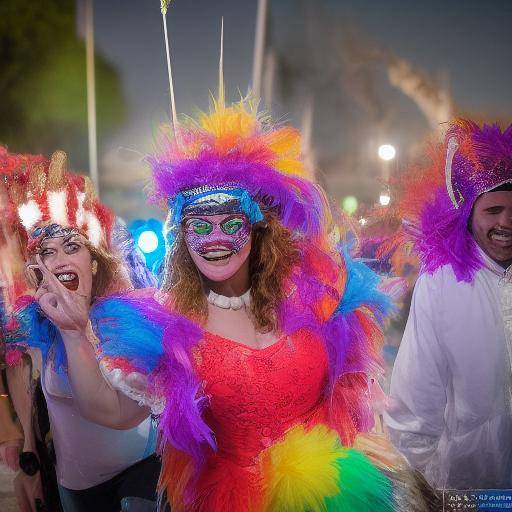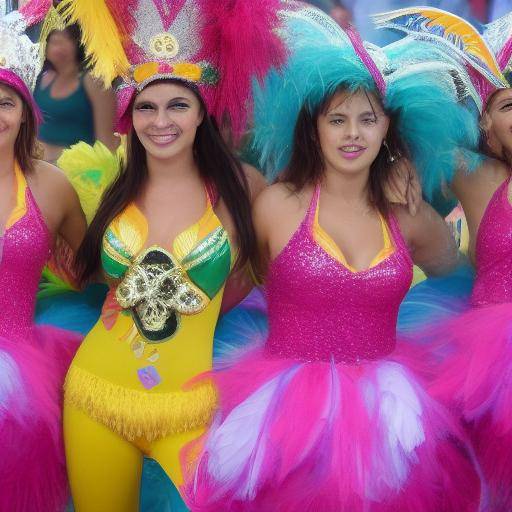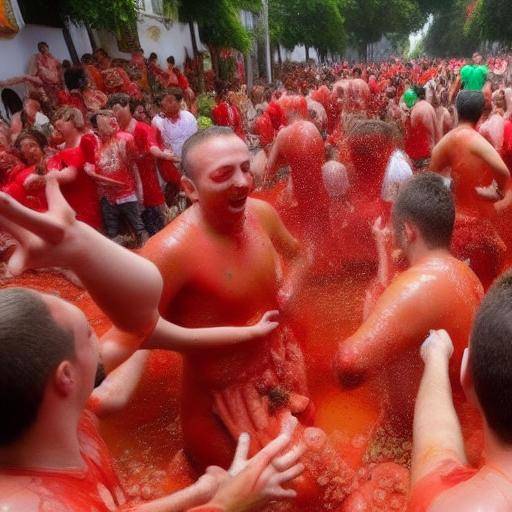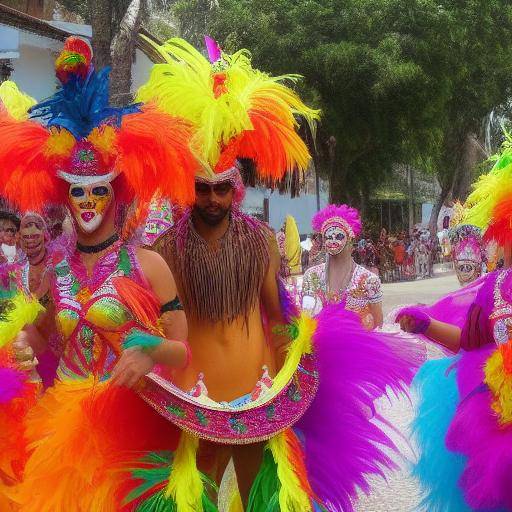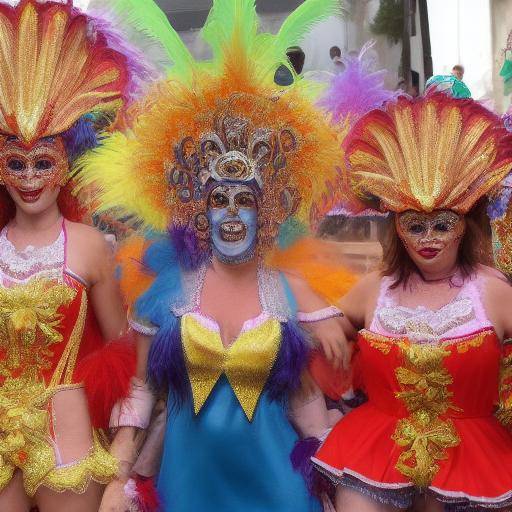
The Rio de Janeiro Carnival is much more than a popular holiday. This event, rooted in the Brazilian tradition, has deep roots in the mythology and cultural education of the country. Discover with us the cultural lessons that hide behind this fascinating phenomenon, exploring its myths, legends and symbolisms.
Introduction
The Carnival of Rio de Janeiro is known worldwide for its dazzling parades, vibrant costumes and a contagious energy that fills the streets of the city. However, beyond the festive appearance, this event contains a rich cultural heritage that reflects the diversity and history of Brazil. Throughout this article, we will explore in depth the cultural lessons we can draw from the Carnival of Rio, immersed in its myths, legends and symbolisms to understand its true meaning.
History and Origins of the Rio Carnival
The Carnival of Rio de Janeiro has its roots in the festivities introduced by the Portuguese colonizers, merged with African traditions and indigenous rituals. Over the centuries, this celebration has evolved, acquiring a unique symbolism that reflects the identity of Brazil and its cultural diversity. From the beginning to the present day, the Carnival of Rio has been a reflection of the history of the country, marked by moments of resistance, artistic expression and collective celebration.
Analysis in Deep
The Rio Carnival is not only a festival, but also a manifestation of the Brazilian identity. Through its parades, dances and music, the Carnival becomes a showcase for the cultural diversity and creativity of the Brazilian people. This event not only attracts tourists from around the world, but also awakes a sense of pride and belonging in the Brazilians themselves. It also serves as an important impetus for the local economy, generating employment and projecting a positive image of Brazil internationally.
Brazilian mythology: Carnival myths and legends
Behind the colorful masks and the imposing floats of the Carnival of Rio, the myths and legends of the rich Brazilian mythology are hidden. The gods and heroes of ancient tradition intertwine with contemporary representations, giving Carnival a deeper meaning. The different samba schools, for example, often choose mythological themes for their parades, reviving old stories and transmitting important teachings through dance and music.
Cultural Education through the Rio Carnival
The Rio de Janeiro Carnival represents a valuable opportunity for cultural education, both for Brazilians themselves and for foreign visitors. Through their participation in parades, dances and Carnival-related activities, people can experience and understand Brazil's cultural diversity in a unique way. This event becomes a living lesson, which transcends the classrooms and books, teaching about the history, music, dance and traditions of Brazil.
Comparative analysis
By comparing the Rio Carnival with other cultural festivities in the world, his ability to convey cultural lessons is emphasized in an inclusive and accessible way. Unlike other celebrations that may be more deeply rooted in local religion or tradition, the Carnival de Rio offers a broad and dynamic view of Brazilian culture, opening the doors to the diversity and plurality of artistic expressions.
Simbolismos del Carnival de Rio
The different aspects of the Rio Carnival, such as masks, costumes and artistic representations, are loaded with symbolism that transcend the purely aesthetic. Each element of Carnival has an underlying meaning that communicates ideas, values and emotions. A particular beginning of Brazilian mythology, infusing the spirit of tradition in a contemporary celebration.
Conclusions and Perspective Futures
The Carnival of Rio de Janeiro is much more than a festive event; it is a testament to the rich history, mythology and cultural diversity of Brazil. Through its rituals, parades and music, Carnival teaches us profound lessons about the identity and spirit of the Brazilian people. This twist of tradition and modernity, mythology and art, provides a unique perspective that transcends the borders and invites us to celebrate the cultural wealth of Brazil.
FAQs
What is the origin of the Rio de Janeiro Carnival?
The Carnival of Rio de Janeiro has its roots in the festivities introduced by the Portuguese colonizers, merged with African traditions and indigenous rituals. Over the centuries, this celebration has evolved, acquiring a unique symbolism that reflects the identity of Brazil and its cultural diversity.
What role does Brazilian mythology play in the Rio Carnival?
Brazilian mythology is intrinsically linked to the Carnival of Rio de Janeiro, as many parades and representations are based on mythological issues. Ancient myths and legends infuse Carnival with a symbolic depth, transmitting ancestral teachings through dance, music and visual art.
How does the Rio Carnival contribute to cultural education?
The Rio de Janeiro Carnival offers a valuable opportunity for cultural education, both for Brazilians and for foreign visitors. Through their participation in parades, dances and Carnival-related activities, people can experience and understand the cultural diversity of Brazil in a festive and dynamic context.
What symbolizes the Rio Carnival beyond its festive appearance?
The Carnival of Rio de Janeiro is loaded with symbolisms that transcend the purely aesthetic. Each element of Carnival has an underlying meaning that communicates ideas, values and emotions, adding a layer of depth to this iconic holiday.
What are the cultural lessons we can learn from the Rio Carnival?
The Rio Carnival teaches us deep lessons about the identity and spirit of the Brazilian people, as well as the rich history, mythology and cultural diversity of Brazil. Through its rituals, parades and music, the Carnival transcends the borders and invites us to celebrate the cultural wealth of Brazil.
What is the impact of the Rio Carnival on Brazil's international projection?
The Carnival of Rio de Janeiro projects a positive image of Brazil internationally, attracting tourists from around the world and promoting the cultural diversity and creativity of the country. In addition to being a festive celebration, the Carnival has become a powerful cultural ambassador of Brazil on the world stage.
With every turn of chariot and every note of samba, the Carnival of Rio de Janeiro invites us to immerse ourselves in the cultural wealth, history and mythology of Brazil. Beyond being an ephemeral holiday, Carnival is a living testimony of the identity and creativity of the Brazilian people, sharing teachings that transcend borders and generations.
With a legacy rooted in mythology and cultural education, the Carnival of Rio de Janeiro is a feast for the senses and the soul, revealing the very essence of Brazil through its myths, legends and symbolisms.

